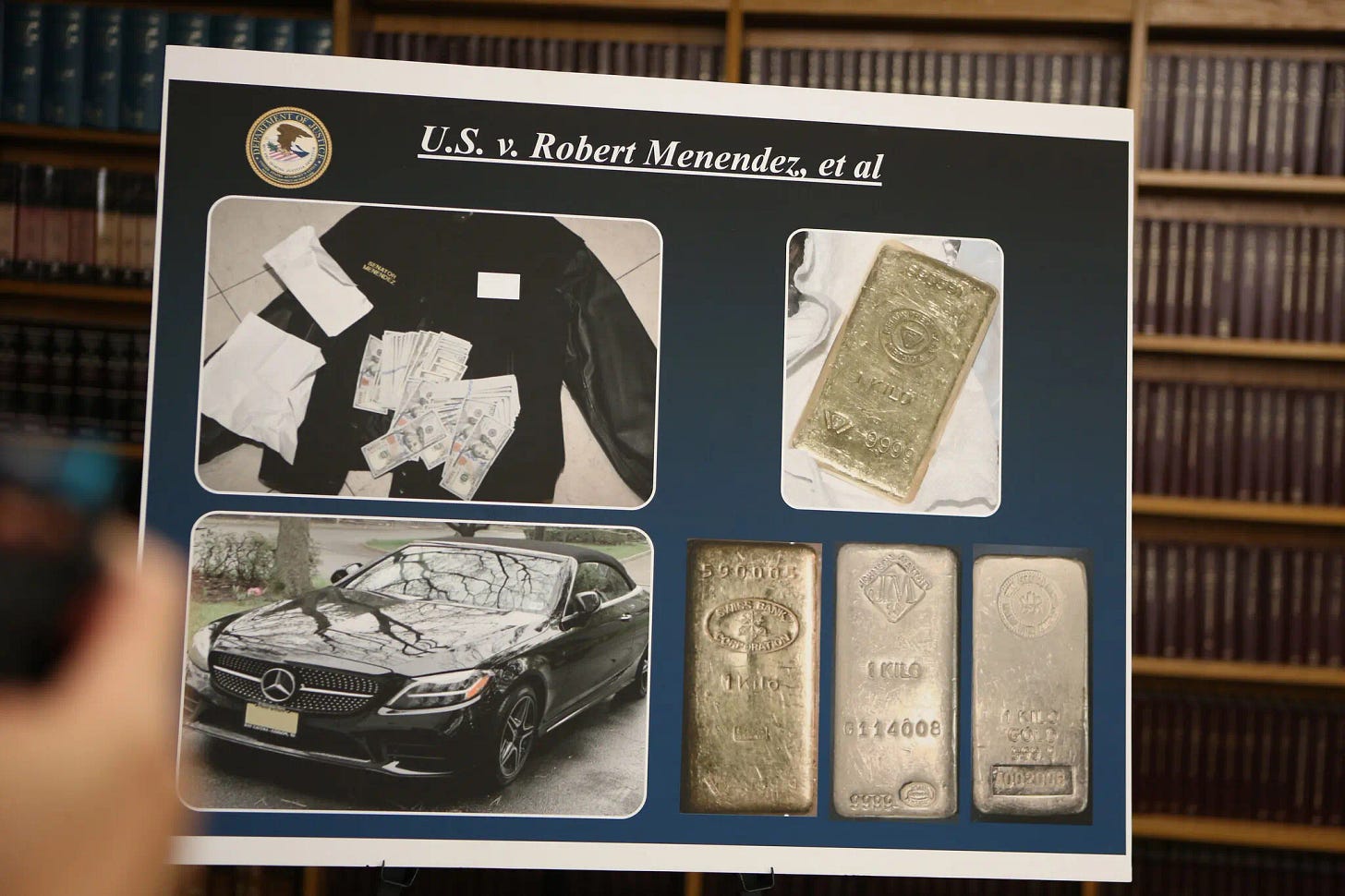Senator Bob Menendez's Hypocrisy
A Closer Look at His Opposition to Bitcoin in El Salvador
In the world of politics, hypocrisy is a term thrown around quite often. But few instances of hypocrisy are as glaring as that of Senator Bob Menendez, who vehemently opposed El Salvador's adoption of Bitcoin while simultaneously being embroiled in a bribery scandal that exposed his own questionable financial dealings. This article will shed light on Senator Menendez's outspoken criticism of El Salvador's Bitcoin adoption, explore his allegations of corruption and money laundering, and highlight the irony of his stance on Bitcoin.
The Bitcoin Revolution in El Salvador
El Salvador made headlines in September 2021 when it became the first country in the world to officially adopt Bitcoin as a legal tender. The move, spearheaded by President Nayib Bukele, was hailed by Bitcoin enthusiasts as a significant step towards financial inclusivity and economic freedom. Bitcoin's decentralized nature and public ledger technology were expected to bring transparency and accountability to El Salvador's financial transactions.
Senator Menendez's Criticism
Senator Bob Menendez, a long-serving Democrat from New Jersey, emerged as one of the most vocal critics of El Salvador's Bitcoin adoption. He expressed concerns that this move would open the floodgates to corruption and money laundering in the country. He argued that the use of cryptocurrencies would make it easier for criminals to engage in illicit financial activities, all while undermining the traditional financial system.
The Hypocrisy Unveiled
Ironically, while Senator Menendez was busy criticizing Bitcoin for its alleged potential to facilitate corruption and money laundering, he found himself entangled in a corruption scandal of his own. In 2021, the FBI revealed that it had retrieved over $580,000 from the senator, with $100,000 in gold and $480,000 in cash sewn into his clothing. This shocking revelation brought to light the very corruption that Menendez had warned against in El Salvador.
Bitcoin: A Tool Against Corruption
One of the most significant features of Bitcoin is its public ledger technology, known as the blockchain. Every transaction conducted with Bitcoin is recorded on the blockchain, making it transparent and immutable. This transparency acts as a powerful deterrent to corruption and money laundering, as all transactions are traceable and accountable. Unlike traditional fiat currencies, where large sums of money can be moved discreetly, Bitcoin leaves a permanent and public record of every transaction.
The Threat to Traditional Power Structures
Bitcoin's growing popularity represents a challenge to traditional power structures, including governments and financial institutions. It offers individuals a level of financial freedom and autonomy that is not dependent on the U.S. dollar or any other fiat currency. This is precisely why some government officials, like Senator Menendez, may oppose its existence. Bitcoin undermines their control over the financial systems and empowers individuals to manage their wealth independently.
Conclusion
Senator Bob Menendez's hypocritical stance on El Salvador's Bitcoin adoption underscores the broader debate surrounding cryptocurrency's role in the global financial landscape. While he voiced concerns about corruption and money laundering in a foreign nation, he himself was embroiled in a corruption scandal. Bitcoin's public ledger technology stands as a beacon of transparency and accountability, making it an anti-money laundering tool that could actually combat corruption. As Bitcoin continues to gain popularity and challenge established financial systems, it is likely to face even greater opposition from those who fear the erosion of their control and influence.



